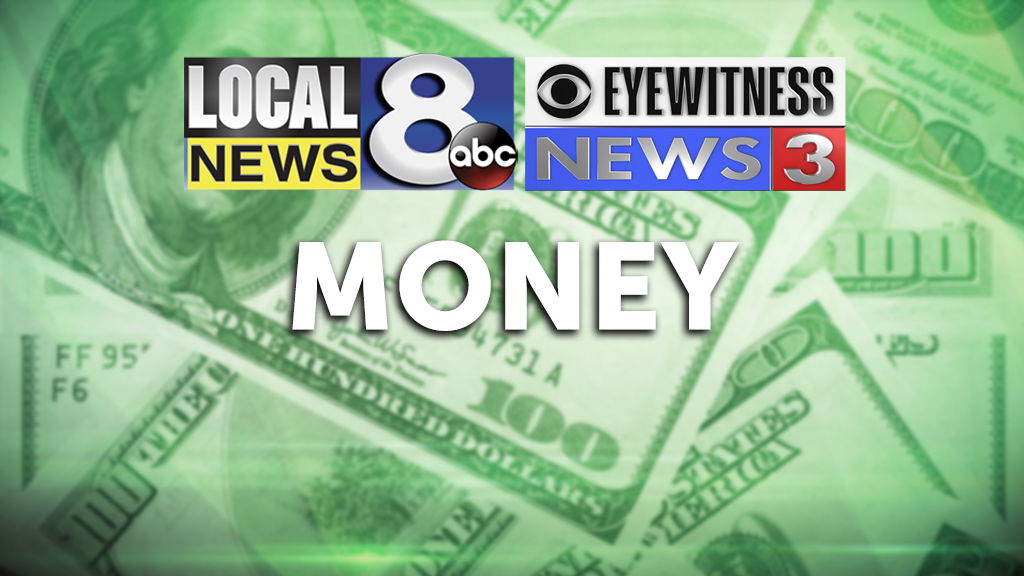The global recovery is gaining speed. There are still huge risks

Finally, some good news: The outlook for the global economy is clearly improving.
What’s happening: The Organization for Economic Cooperation and Development unveiled major upgrades to its global forecast on Tuesday. It said that “economic prospects have improved markedly in recent months,” pointing to the deployment of coronavirus vaccines and additional stimulus announcements.
The Paris-based agency now expects the world economy to grow by 5.6% in 2021, an improvement of more than one percentage point from its estimate in December.
The US economy is predicted to expand by 6.5% this year, over three percentage points better than the December forecast. The agency pointed to the effects of “strong fiscal support” from President Joe Biden’s $1.9 trillion stimulus package.
But the OECD also emphasized that extreme uncertainty remains, and that plenty of factors could jeopardize the recovery.
One example: Investors have become increasingly concerned that a rush of activity could trigger a spike in prices later this year, forcing central banks to raise interest rates or taper bond purchases sooner than expected.
According to the OECD, a rebound in demand, especially from China, is pushing up food and metals prices, while oil prices have staged a strong comeback. But the group said it will be essential for policymakers to keep the stimulus coming, even if inflation overshoots some targets.
The possibility of a sharp rise in prices is far from the only fear.
The agency noted that vaccine campaigns are moving at different speeds around the world, and coronavirus variants that resist vaccines could still emerge.
“Slow progress in vaccine rollout and the emergence of new virus mutations resistant to existing vaccines would result in a weaker recovery, larger job losses and more business failures,” it said in its report.
The OECD also said that it’s essential that governments maintain their support for the economy even as the situation starts to brighten. European Central Bank President Christine Lagarde has issued a similar warning, cautioning that countries should not “brutally” pull stimulus.
“A premature tightening of fiscal policy must be avoided,” the group said.
Another worry is high levels of debt. The OECD focused on corporate debt loads, in particular, with debt servicing burdens at or above their level during the 2008 financial crisis even though interest rates are at historic lows.
“Although some firms have used borrowing to build up sizable cash buffers since the onset of the pandemic, high leverage could moderate new investment,” it said. If the recovery is slower than expected, or government support programs end too soon, this could “trigger additional debt delinquencies or defaults.”
Right now, these are just hypotheticals. But so are expectations of booming growth, which are due to play out in the coming months. The OECD report is a reminder that while the outlook is brightening, it’s also tentative.
These stocks are thriving while Big Tech gets hammered
Tech companies are clearly the big losers in markets right now. Apple is nearing bear market territory, while the tech-heavy Nasdaq Composite entered a correction on Monday, having dropped 10.5% below the record it notched in mid-February.
But plenty of firms are benefiting from the stock market rotation, as investors give companies they’d dumped earlier in the pandemic a second look.
See here: Disney shares jumped more than 6% Monday, while Visa and American Express both rose 2%.
These firms all stand to benefit if a strong economic rebound materializes later this year, sparking a surge in travel and consumer spending. They’re getting more attention as Biden’s $1.9 trillion stimulus bill heads back to the House of Representatives, where it’s on track for a final vote Wednesday.
Other winners: Shares of Southwest Airlines gained 6.4% on Monday, while Gap rose 5.8%. JPMorgan Chase’s stock rose more than 1%.
This divide — fueled by Wall Street’s growing interest in shares that may be undervalued — helps explain why the major US stock indexes have diverged in recent days. While the Nasdaq Composite plunged 2.4% on Monday, the Dow rose almost 1%.
Analysts think the trend could continue if government bond yields keep pushing higher, making high-growth tech companies less attractive.
“The imminent passage of another huge fiscal support package in the US adds to our conviction that the reflation and rotation trends currently underway in bond and equity markets both have further to run,” Oliver Jones, senior markets economist at Capital Economics, said in a note to clients.
ViacomCBS shares are riding high
There’s no escaping Prince Harry and Meghan Markle’s blockbuster interview with Oprah this week. That’s good news for ViacomCBS, which aired the interview in the United States.
Shares of the media giant soared nearly 13% on Monday, reaching an all-time high. The interview drew 17 million viewers when it aired Sunday, according to Nielsen’s TV ratings scale.
Some context: CBS averaged 6.5 million viewers in prime time the previous Sunday night, my CNN Business colleague Brian Stelter reports. The two-hour special was also higher-rated than the most recent Emmys and Golden Globes award telecasts.
Watch this space: ViacomCBS shares were already riding high thanks to the launch of its Paramount+ streaming service, which debuted earlier this month. Whether the run-up can continue may depend on how many subscribers the company can nab in an increasingly crowded space.
Up next
The Children’s Place and Dick’s Sporting Goods report results before US markets open. H&R Block follows after the close.
Coming tomorrow: A key measure of inflation for February will provide fresh insight for investors nervous about higher prices.
